It’s generally accepted that the timing of your dinner factors into how well you sleep. But there are also foods that help you sleep.
Some emerging, albeit inconclusive research, show that it’s not just what time you eat—it also matters what you eat.
We’ve talked about sleep hygiene. Now, let’s talk about the value of a healthy eating pattern.
RELATED: Best Stress Relief Tools To Get A Better Sleep
Foods That Help You Sleep | Sleep, Serotonin, and Natural Sedatives
Sleep and Sustenance

It turns out that diet and sleep have a bilateral relationship.
Experts believe that eating sleep-inducing foods—or foods that promote sleep—may help you sleep through the night.
Some foods contain vitamins, minerals, proteins, or fats that promote serotonin and melatonin—hormones that play key roles in sleep.
These include:
- vitamin B6
- vitamin D
- calcium
- magnesium
- melatonin
- omega-3 fatty acids
- tryptophan
- gama-aminobutyric acid (GABA)
Research also shows that the less you sleep, the more you eat.
In both adults and children, a lack of sleep has been linked to obesity. Adults that slept for only four hours were found to gravitate toward high-calorie foods.
A small study found that a lack of sleep pushes your hedonic drive to reach for food. If you can’t get enough sleep, you may wind up looking for an energy source at the bottom of a packet of chips. And when you do this repeatedly, you’re sure to gain extra pounds.
Poor sleep may also affect ghrelin and leptin—the two hormones that control our hunger and appetite. And when you’re tired and fatigued from a sleepless night, you’re less likely to hit the gym, keeping you from getting any physical activity.
With a combination of a healthy eating pattern and good sleep, you may fend off chronic diseases, like:
- obesity
- diabetes
- heart disease
A healthy lifestyle is the most natural way you can protect yourself and stay healthy. It’s the ultimate healthcare plan without a doctor’s appointment.
Foods That Help You Sleep
1. Nuts and Seeds

Nuts and seeds contain tryptophan, an amino acid that’s important to the production of serotonin. Serotonin is a neurotransmitter that is responsible for sleep and our mood.
Studies show that tryptophan may improve your sleep efficiency and sleep time. It’s also been found to improve anxiety and depression symptoms, another possible cause of insomnia.
If you’re feeling peckish, grab a handful of these nuts and seeds:
- almonds
- cashews
- pistachios
- walnuts
- chia seeds
- pumpkin seeds
- sunflower seeds
Chia seeds, cashews, and walnuts also contain omega-3 fatty acids—other minerals believed to help promote sleep. Omega-3 may hay help improve the quality and length of your sleep.
Some evidence suggests that magnesium may help you fall asleep and reduce sleep problems that could wake you.
You can find them sold in small packets or party-sized jars in your local grocery store. Some cereals also come fortified in magnesium and other minerals.
Nuts and seeds are also a great addition to the calcium-rich food below.
2. Yogurt
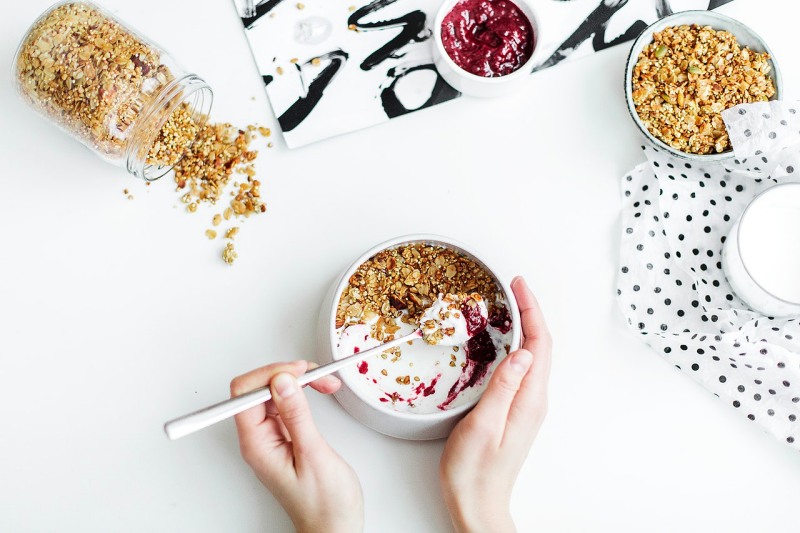
Have trouble falling and staying asleep?
The calcium in your yogurt may help you fall asleep more easily and provide you with restorative sleep. Yogurt is also high in vitamin D, which helps you stay asleep.
Down a glass of milk or top your meals with cheese if you’re not a fan of yogurt. These are also healthful sources of calcium and vitamin D and are tasty replacements for soda and salty snacks.
3. Whole Grains
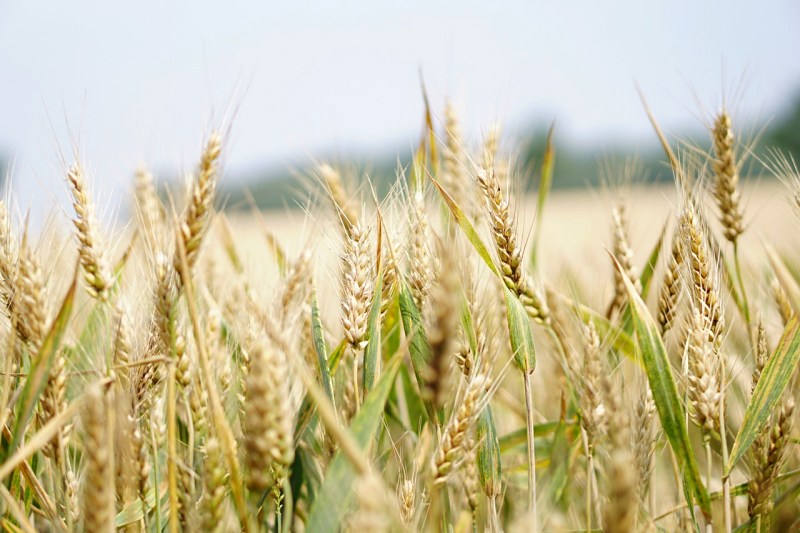
Complex carbohydrates contain a host of minerals and chemicals that work synergistically to promote good sleep, like:
- magnesium
- butyric acid
- selenium
Magnesium attaches to GABA receptors and helps relax your muscle. And at the same time, magnesium regulates melatonin.
Complex carbs boost your serotonin levels while lowering cortisol levels. Cortisol is the stress hormone that keeps you up at night.
And selenium, a known antioxidant, helps calm your restlessness and irritability, potentially helping soothe you to sleep.
Studies also show that carbs help carry tryptophan to the brain. So when you’re planning your next meal, be sure to include a healthy portion of carbs and tryptophan-rich foods (from proteins).
There are two types of carbohydrates you’ll come across at the grocery store—complex carbs and refined carbs. Whole grains are an example of complex carbs.
Examples of refined carbs—the ones we don’t like—include:
- white rice, bread, pasta
- tortillas
- most breakfast cereals
Instead, go for complex carbohydrates like:
- whole wheat bread, pasta
- brown rice
- barley
- bulgur wheat
- oatmeal
Refined carbs are known to have the opposite effect, lowering your serotonin supply and keeping you up.
However, some studies on white rice suggest that the grain may promote sleep. But because studies are limited and different countries have different definitions of insomnia, let’s sleep on this first. Embracing whole grains and complex carbs also leads to more health benefits beyond sleep.
RELATED: 7 Air Purifying Plant Bedroom Ideas
4. Soybeans
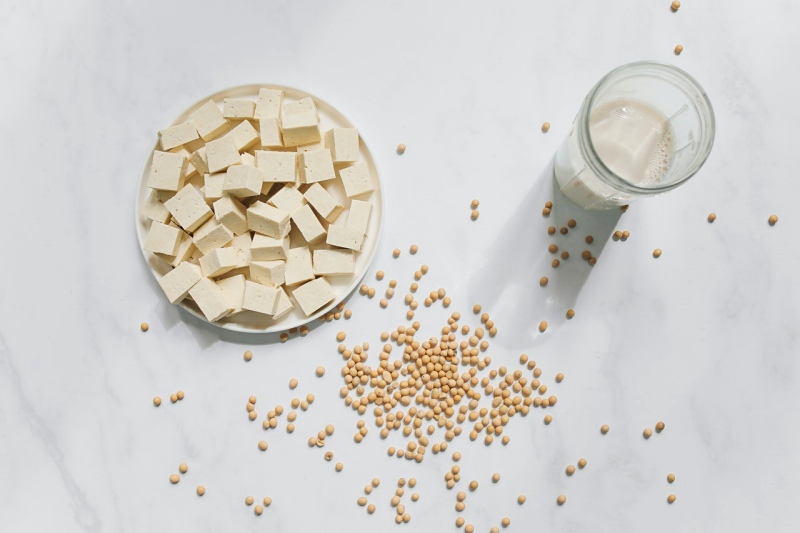
If you’re lactose intolerant, here’s an amazing alternative! And it also happens to be strongly linked to optimal sleep.
Soybeans contain isoflavones. Similar to estrogen in humans, these phytoestrogens are believed to regulate sleep quality and duration.
One 2017 study found that high intakes of soy were associated with a lower risk of daytime falling asleep in women.
Another 2015 study found that phytoestrogen, like human estrogen, may promote restorative sleep and longer sleep duration.
The L-ornithine in soybeans may also lower your stress and anxiety, improving the quality of your sleep.
5. Leafy Greens

Leafy greens are packed with vitamins, minerals, and antioxidants that serve you restorative sleep served on a green platter, such as:
- vitamin C
- choline
- potassium
- magnesium
- iron
- calcium
- tryptophan
- fiber
- lutein
- zeaxanthin
- complex carbs
- beta carotene
Enjoying some greens may help you fall asleep more easily.
While lutein and zeaxanthin help filter out melatonin-suppressing blue light, antioxidants like betacarotene make it easier to fall asleep.
Fiber is known to provide deep and restorative sleep. And the complex carbs in leafy greens may also help increase serotonin levels and deliver melatonin-producing tryptophan to your brain.
6. Cheeses
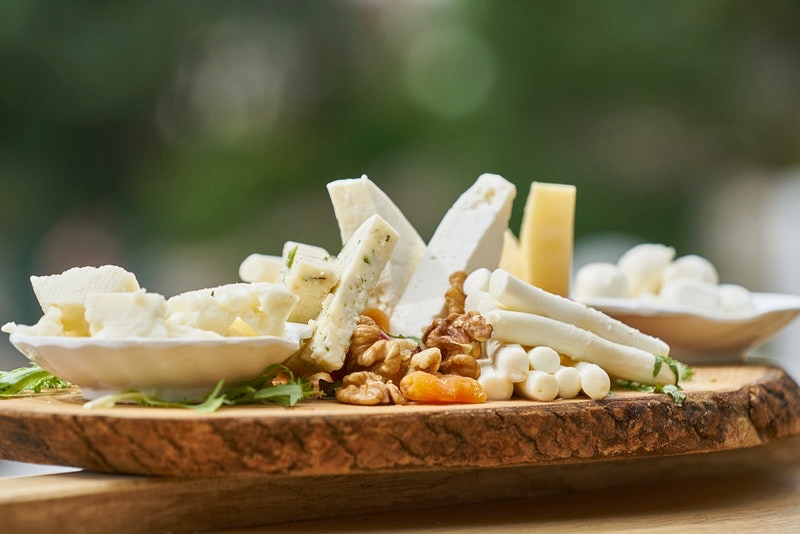
Fancy some cheese and crackers? This might be your new favorite nighttime snack (must be consumed three hours before bed, of course).
The nutrients in cheeses may help you achieve optimal sleep, like:
- tryptophan
- serotonin
- calcium
- magnesium
Calcium plays a key role in activating tryptophan, an amino acid crucial in melatonin production. Cheese also contains antioxidant selenium, which is associated with good sleep.
It also contains serotonin and muscle relaxant magnesium.
7. Poultry

The proteins in your chicken dish may give you both a satisfying meal and slumber.
Turkey and chicken are excellent sources of tryptophan. Tryptophan is a precursor to serotonin, which is essential in melatonin production.
You can only get tryptophan from your diet, so be sure to include poultry in your meal plan.
Are There Really Foods That Help You Sleep?
Possibly!
But while the science of food and sleep is exciting, we still have a long way to go before the scientific community dubs them as fact. So take this with a grain of salt.
Still, this is a natural approach you can take to help you fall asleep and stay asleep. And if it helps you replace less healthy snacks, even better!
Sleep and food play major roles in your health. And apparently, they have a synergistic benefit, boosting overall health.
Sleep may prevent overeating. And food helps you get better sleep.
A lot of the things you do during the daytime dictate how well you rest at night.
How close to bedtime you drink coffee, how much sunlight you get, and whether or not you get some physical activity play into the dynamics of sleep.
It’s no wonder that everyone is looking into the science of sleep. From psychologists and dietitians to cardiologists and sports scientists, different fields of research are discovering that there are more to 40 winks than we think.
So what are you having for dinner tonight?
Has this given you food for thought? Or are you dreaming about your favorite desserts tonight? Share your thoughts with us in the comments section below! We’d love to hear from you.
UP NEXT:

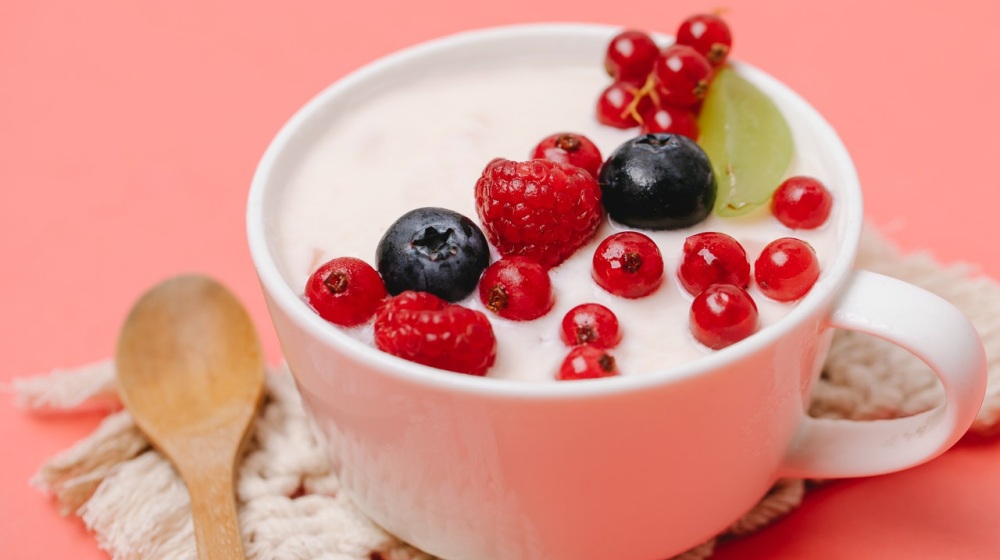










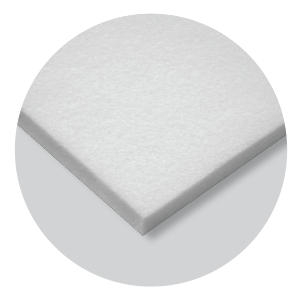

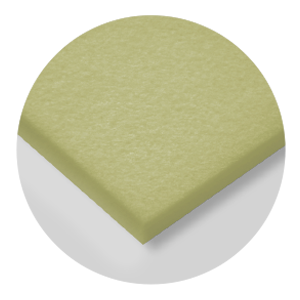





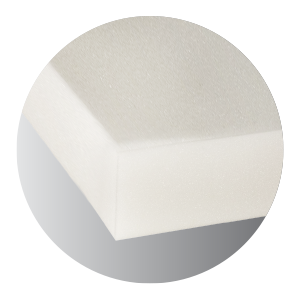





















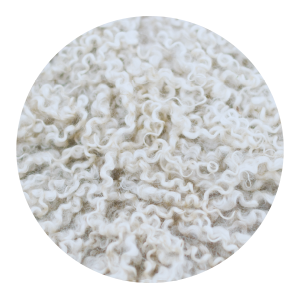














0 Comments